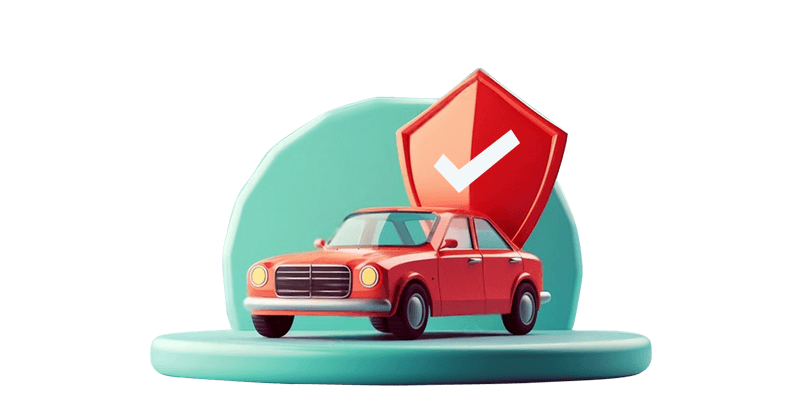
Is car insurance a legal requirement or a crucial financial safeguard? Well, in the Philippines, it’s both. Who? So, while Compulsory Third Party Liability (CTPL) insurance is a mandatory, legal requirement to get your vehicle registered at the LTO, comprehensive insurance offers you wide coverage against so many dangers that it’s no less than a saviour during tough times. Additionally, there are add-ons that provide an extra layer of protection.
Getting confused? We understand, and that's why we've curated this guide on car insurance inclusions and exclusions. It doesn’t matter if you are a first-time car owner or a seasoned driver; this bit of information (coverage-related) is one of the most important things to know about your insurance plan.
So, let’s get started and discover what is covered (and not covered) by your car insurance policy!
Car insurance in the Philippines - What’s available
As mentioned earlier, in the Philippines, car insurance is broadly categorised as follows -
- Compulsory Third Party Liability (CTPL) insurance - Required by law
- Comprehensive insurance - Optional, but highly recommended
Coverage? Let us explore each of these insurances more closely.
Also Read: CTPL vs. Comprehensive Motorcycle Insurance: A simple guide for riders
What does CTPL insurance cover (and what doesn't)?
The first thing a car owner needs to do after making a major purchase is to obtain Compulsory Third-Party Liability (CTPL) insurance. Only after obtaining a CTPL can the car be registered with the LTO, an essential requirement for driving on public roads legally.
The primary purpose of CTPL insurance is to cover expenses resulting from injury or death to another person caused by the insured vehicle. What about the costs it does not cover? That includes - damages to the policyholder’s car, damage to other vehicles or property, and even injury caused to the policyholder or passengers in the insured vehicle.
Overall, CTPL is a basic legal coverage that protects third parties, not the policyholder or their car.
What does comprehensive insurance cover (and what doesn't)?
According to car insurance experts, every Filipino car owner should obtain comprehensive insurance for a broader protection net. Unlike the CTPL, it is not mandatory; however, a few banks and lending institutions require it for the financed vehicle.
Here’s what coverage is generally included under comprehensive insurance -
Third-party property damage: If you damage someone else's vehicle or property, such as a structure or gate, while driving, this coverage will cover the repair or replacement costs.
Third-party bodily injury: If, while driving, you injure someone walking or driving on the road, this coverage will cover the medical bills (up to the prescribed limit). In the event of death, the burial costs will be covered.
Own damage coverage: In the event your car is damaged in an accident, regardless of who is at fault, this coverage will protect the insured vehicle.
Theft coverage: As the name suggests, this coverage protects you in the event that your car is stolen or damaged during carjacking.
Also Read: Car insurance & theft coverage in the Philippines - A Complete Guide
Acts of nature coverage: Some insurance providers include coverage for Acts of God or Nature under comprehensive insurance. Here you’ll get compensated if your car gets damaged due to calamities like typhoons, floods, volcanic eruptions, earthquakes, and landslides - all of which are critical to the Philippines.
Note that if Acts of God coverage is not part of your comprehensive plan, you can obtain it through add-ons.
Personal Accident: In the event of an accident, if you or the passengers in your car are injured or die, this coverage will help cover hospital bills.
Also Read: Breaking down personal accident coverage in Philippine car insurance
 Photo from Freepik
Photo from FreepikOptional add-ons explained
In addition to CTPL and comprehensive insurance, if you still require further coverage, consider exploring the optional add-ons. However, we suggest that you first assess your needs and then opt for additional coverage, as it will substantially increase your premium.
Some of the typically offered add-ons include -
Roadside assistance: This service includes towing, tyre replacement, battery jump-starts, and more.
Acts of God: This coverage provides financial protection against damages resulting from natural disasters, such as earthquakes, floods, and volcanic eruptions.
Loss of use: This coverage offers reimbursement while your car is being repaired.
Engine protection: As the name suggests, this add-on provides coverage against engine damage resulting from flooding.
What is typically not included in a car insurance policy?
Now that you know what is included under CTPL and comprehensive coverage, it is essential to understand what is not covered in a car insurance plan. This will save you from last-minute surprises, so without any delay, let’s check instances with no coverage.
Scenario 1: Driving under the influence
In case the policyholder gets involved in an accident while driving under the influence of alcohol or drugs, no insurance policy will pay for any damages or injuries to you or your passengers.
Scenario 2: Unlicensed or unauthorised driver
In case your car gets into an accident when someone who is not listed as an authorised driver in your policy, or without a license, is behind the wheel, your insurance policy will not cover the damages.
Scenario 3: Mechanical or electric breakdown
Engine and battery health are regularly maintained; therefore, issues such as engine failure and battery problems are not typically covered by insurance policies.
Scenario 4: Reckless driving
Damages to the insured vehicle sustained while participating in a race or a drag event are excluded from insurance coverage.
 Photo from iStock
Photo from iStockBusting common car insurance myths
Many Filipino policyholders assume that their policy covers all damages automatically - but, no, that is not correct. Likewise, there are a few other misconceptions that need to be addressed. So, here we go -
Myth 1: Damage by flood is covered by all policies.
Fact: Only if the policy includes Acts of God coverage
Myth 2: CTPL insurance is enough; it covers all types of accidents.
Fact: CTPL insurance is the most basic plan, covering only third-party injury or death.
Myth 3: Insurance pays regardless of the driver.
Fact: Insurance will pay for the damages only if an authorised driver is behind the wheel.
Tips to choose the right coverage
Wondering how to choose the right insurance policy? Here are some hacks -
- Access your driving environment: urban, traffic, and flood-prone.
- Compare at least three to four insurance providers in terms of price, coverage, customer service, and claim process.
- Check the policy inclusion and exclusions.
- Consider add-ons that suit your requirements and lifestyle.
- Read the policy fine print.
Bottom line
As a car owner seeking an optimal insurance policy for your vehicle, it is essential to understand what coverage the prospective providers offer. Likewise, it is important to know what is not covered under the policies. With this information, you’ll be able to make a wise decision. Here, we’d like to remind all first-time car insurance applicants that in the Philippines, you are legally required to obtain CTPL coverage. As for comprehensive insurance, it is highly recommended and saves the policyholder from financial headaches later.
Here’s a small tip for choosing a policy that fits your lifestyle - make sure to evaluate your driving habits, budget, and location. Remember, proper protection will give you the confidence to drive with confidence and in complete peace.
FAQs
Q1. Do all comprehensive car insurance policies include Acts of God coverage?
Ans. Not necessary. Having a comprehensive car insurance policy does not guarantee coverage against natural disasters. Acts of God coverage is typically an add-on that policyholders must request separately. However, it’s best to confirm the inclusions with your provider.
Q2. My car is more than 10 years old. Can I get it insured?
Ans. Yes, every car, whether brand-new, old, or used, needs to be insured in the Philippines. However, being a ten-year-old vehicle, insurance providers might offer limited coverage, and the car requires inspection.
Q3. Will my car insurance policy cover damage from vandalism and riots?
Ans. Only if your policy includes appropriate coverage against malicious acts like riots and vandalism.
Q4. What if my friend lends me my car and crashes it? Will my claim get passed?
Ans. If your friend is listed as an authorised driver in the policy, your claim will be mostly cleared; if not, the claim may be denied.
Q5. Is towing covered by a car insurance policy?
Ans. Only if the car insurance policy includes ‘roadside assistance’ coverage.
Q6. If my car is damaged in an accident, will CTPL insurance cover the repair costs?
Ans. No. CTPL insurance is mandatory for vehicle registration at the LTO; as for coverage, it only offers protection against third-party injury/death.
Q7. My car sustained several dents and scratches. Can I raise an insurance claim?
Ans. Yes, you can do so under ‘Own Damage’ cover. However, note that minor dents and scratches might not be worth claiming.
Q8. I barely drive, do I still need car insurance?
Ans. Yes. However, you can skip the highly recommended comprehensive coverage and opt for the mandatory CTPL insurance.
Q9. What can I do if my insurance claim gets denied?
Ans. There are a few steps you can take, starting with contacting the insurance provider and requesting an explanation. Or you can escalate the matter to the Insurance Commission.
Q10. Is it worth going for a higher deductible to lower the premium?
Ans. Do so only if you are a cautious driver and want to save on annual insurance costs.
Also Read: Why buying car insurance online is SMARTER in 2025












